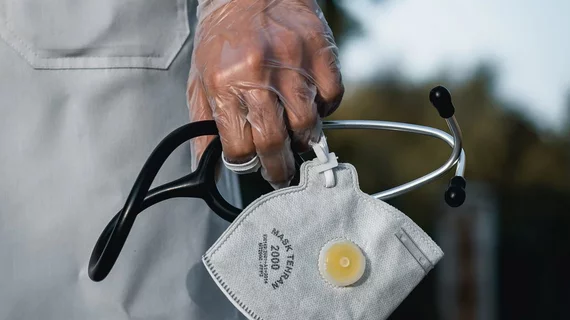Pandemic pushes radiologists to ditch patient shielding during x-ray exams
The ongoing pandemic has forced providers to quickly adapt their approach to care. And for some hospitals that has meant phasing out lead aprons long-used during x-ray exams.
That’s the case for multiple Yale New Haven Health hospitals, including Greenwich Hospital, Bridgeport Hospital and the system’s flagship institution Yale New Haven Hospital, the Laredo Morning Times reported Sept. 26.
Radiologists and physicians have debated about whether shields, used to block radiation from the ovaries and testes, are still needed given the advances in technology and low amounts of radiation used in modern modalities. Much research has found the practice does little to protect patients.
Jay Pahade, MD, radiology medical director for quality and safety at Yale New Haven Health, told the news outlet that it had intended to stop shielding in July, but COVID-19 made aprons an infection risk, and cleaning them took time they didn’t have. The system, therefore, switched its approach in March.
“This is a monumental shift in what has been standard practice in radiology for 50-plus years,” Pahade said in the news story. “They were taught over and over again to shield, to shield, to shield … to protect the patient.”
Read more from the Laredo Morning Times below.

